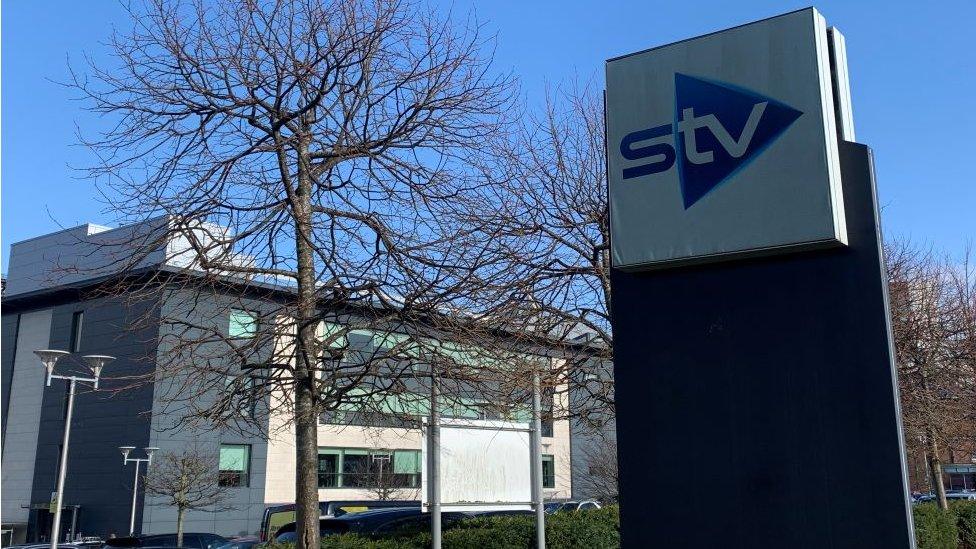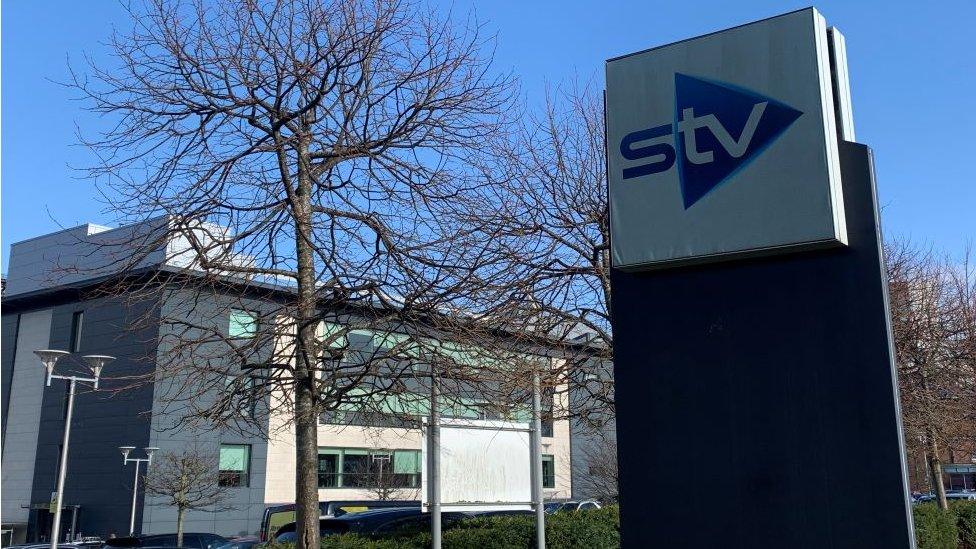STV journalists confirm strike dates over pay
- Published

Strike action could disrupt news programmes at the broadcaster
Journalists at the Scottish broadcaster STV are to stage two one-day strikes over pay.
Members of the National Union of Journalists (NUJ) will go on strike on Thursday 28 March and Tuesday 16 April.
The action is likely to disrupt the station's news programmes although network programmes should go out as usual.
The NUJ has called for a 6% pay rise. STV said most news staff would get rises which keep up with inflation.
The broadcaster said contingency plans were in place to minimise disruption for viewers.
The union is calling for fresh talks to try to resolve the dispute but says it is prepared for a long dispute if necessary.
The vote for action was overwhelming, with 89% of members in favour of the strikes on an 89% turnout.
Nick McGowan-Lowe, the NUJ's national organiser for Scotland, said: "Our members at STV made it clear that feel they have to strike to make their employer listen.
"The STV board, and chief executive Simon Pitts face a simple choice: either they choose to ignore their staff and learn how difficult it is to produce news programmes without news journalists, or they sit down and talk to the NUJ to discuss an improved offer to bring about an end to a costly and protracted dispute."
Last week the company announced revenues of £168.4m for 2023, up 22% from the previous year's £137.8m.
Operating profit was down from £25.8m in 2022 to £20.1m in 2023, a drop of 22%.
STV said it was committed to resolving the dispute through further discussions, but called a 6% pay rise "unrealistic and unaffordable".
A spokesperson said: "STV's pay award will increase salaries by at least inflation for over half of all STV colleagues, including those in the STV News team, and prioritises lower earners.
"We will also introduce a 2024 bonus for colleagues if market conditions improve - which we very much hope will be the case.
"In this current economic climate, the offer made is both fair and financially responsible, has been accepted by BECTU, and is already being paid to over 85% of our colleagues."
STV provides the Channel 3 service in central and northern Scotland. It is the only part of the Channel 3 network which is not owned by ITV plc.
However, its schedule mostly follows the same pattern as ITV plc's flagship channel ITV1.
High inflation, falling revenue
The pay dispute at STV highlights two issues linked to recent economic problems.
NUJ members want a bigger pay rise to help balance out the effects of high inflation.
But television advertising revenue - at STV and other big commercial TV broadcasters - has fallen.
The company itself has been reducing its dependency on TV advertising. Its production business STV Studios - which makes programmes for a whole range of broadcasters including the BBC - is doing well.
But the news service is part of its traditional business, the Channel 3 service for most of Scotland. Ratings are healthy but relatively few adverts are shown around the main news programmes which are, in effect, subsidised by the rest of the schedule.
However, Scottish news and current affairs is also the company's main public service responsibility and wins the company respect.
Over the years, the number of Scottish-made programmes on STV has fallen substantially but the Scottish news service still differentiates it from UK-wide commercial channels.
A strike could potentially affect the company's ability to perform this key public service requirement or even risk damaging the company's reputation amongst some opinion formers in Scotland.
It generally enjoys the goodwill of those who want the Scottish media to remain distinctive.
This is high stakes for both the union and the company. But there is still a fortnight to agree an amicable solution.
Related topics
- Published11 March 2024
